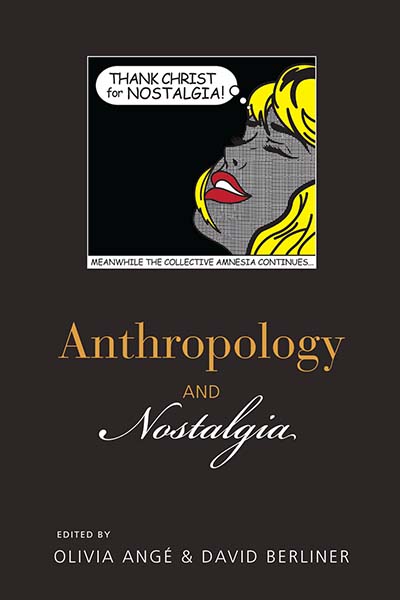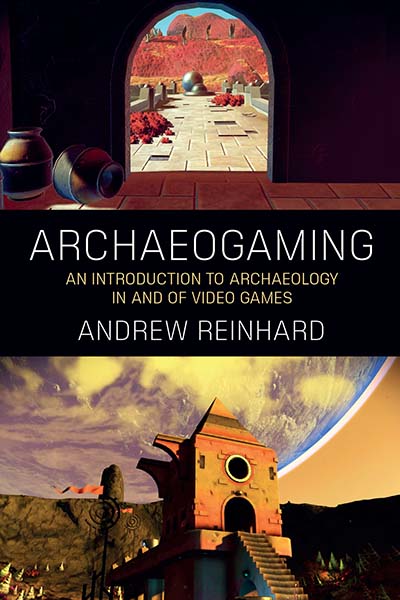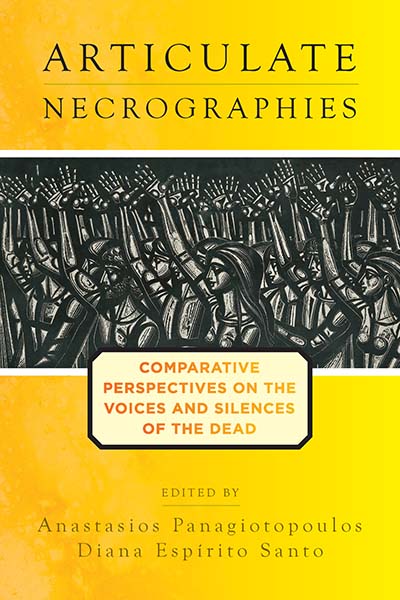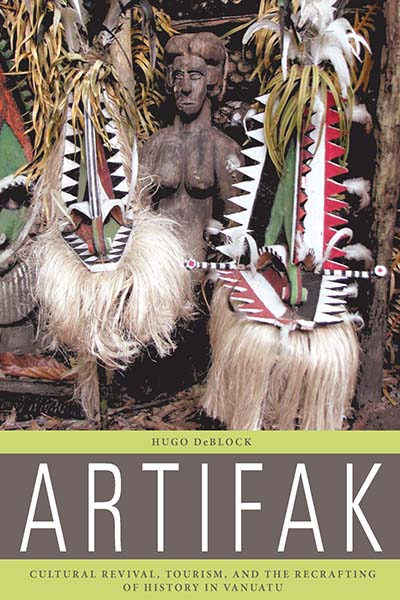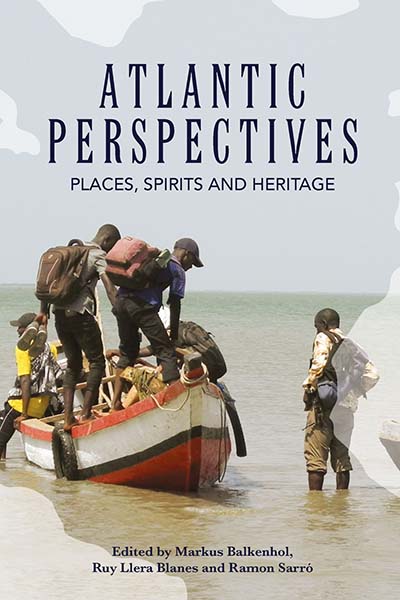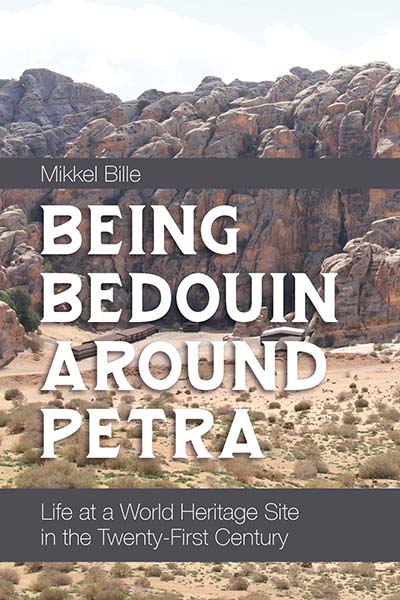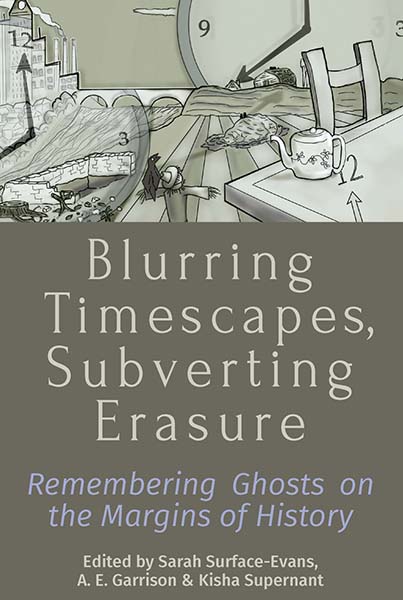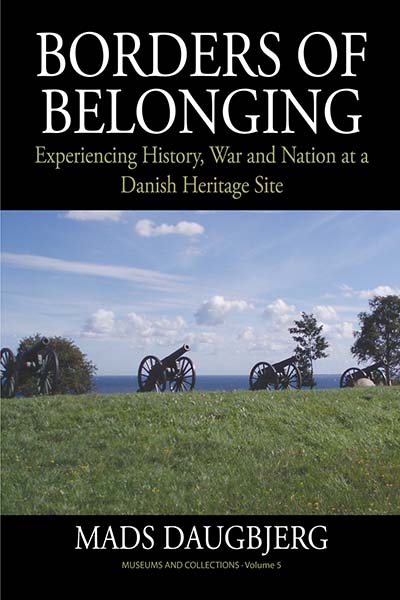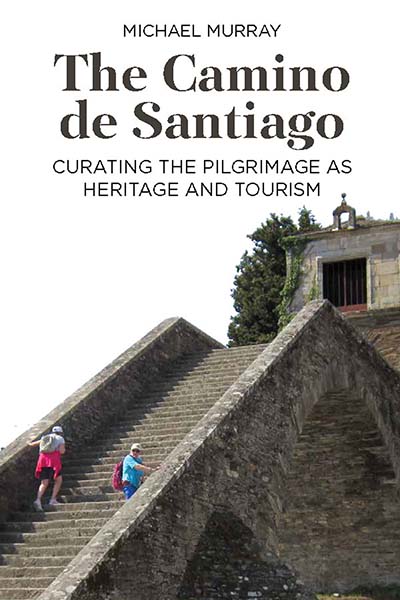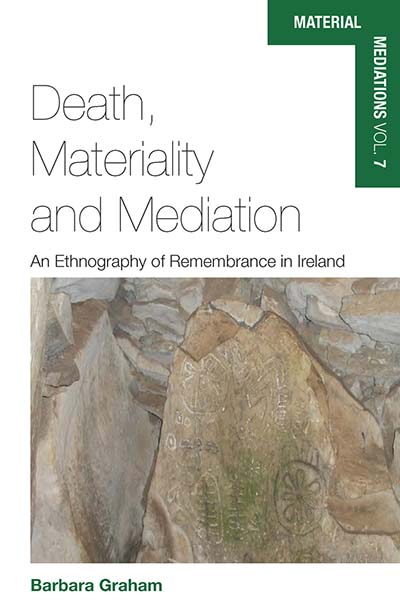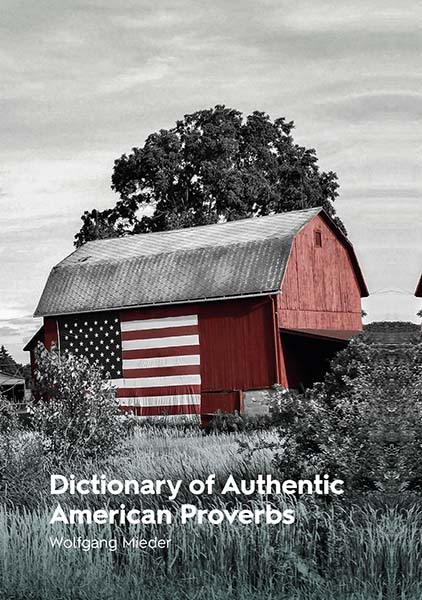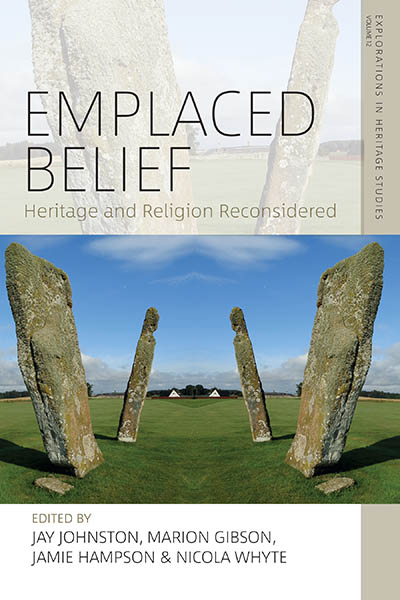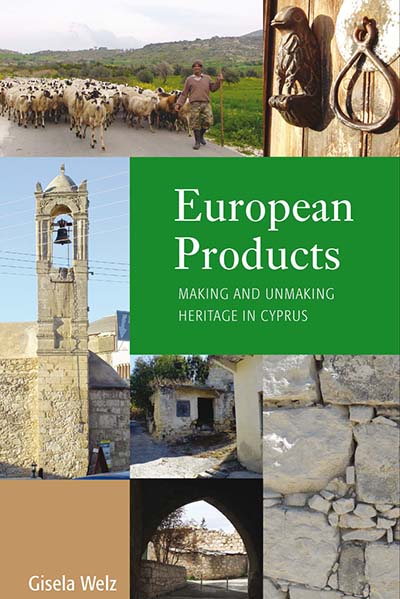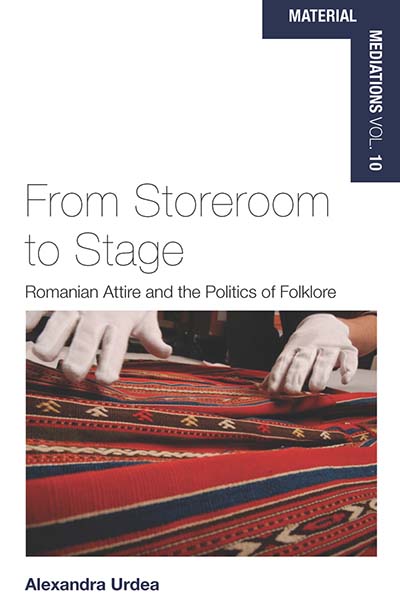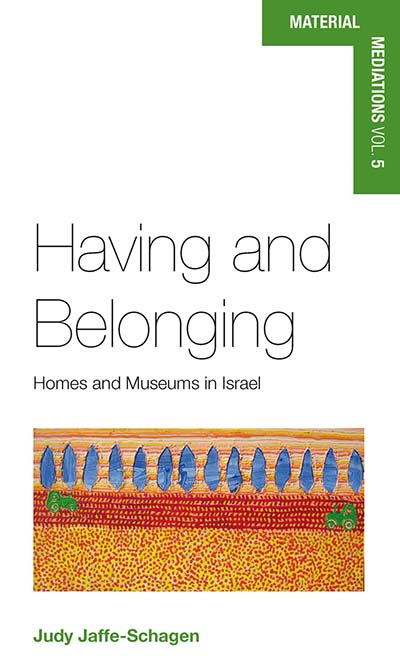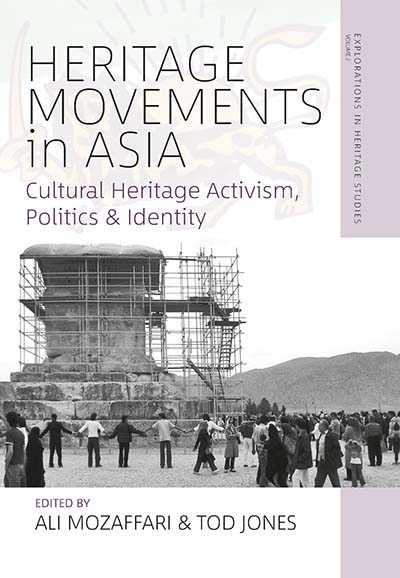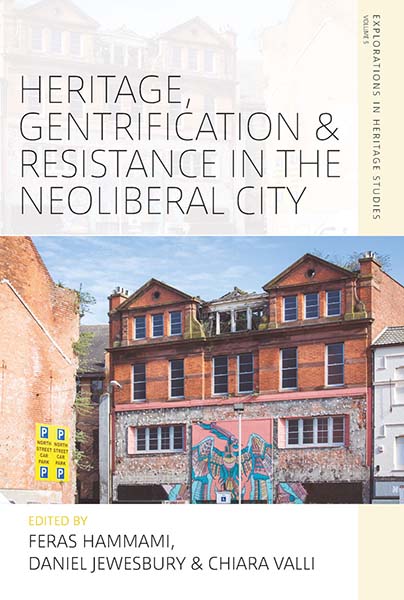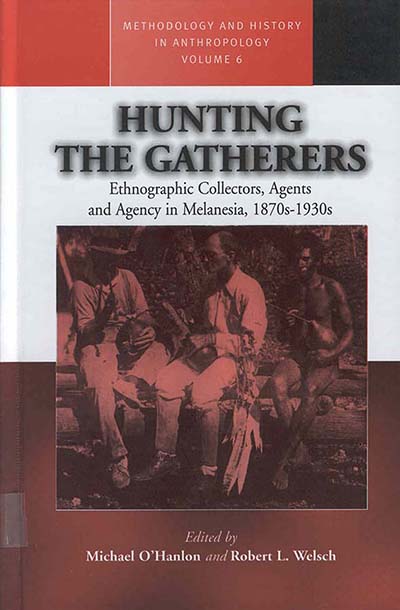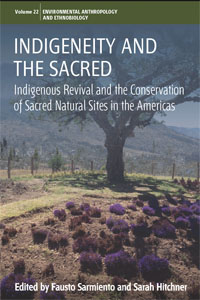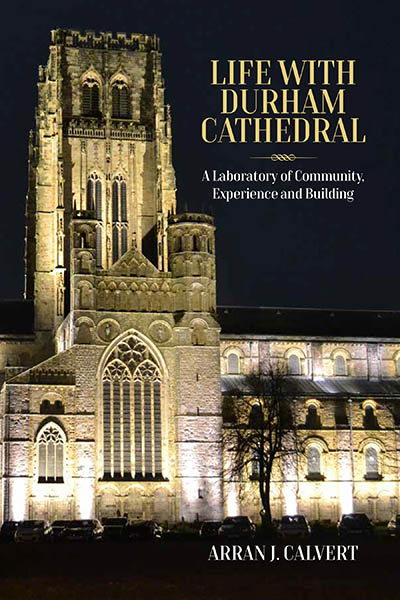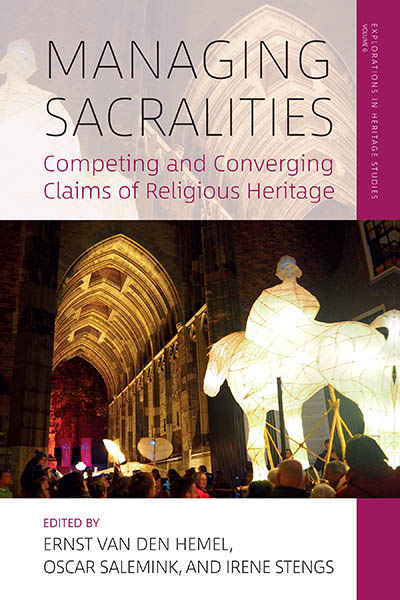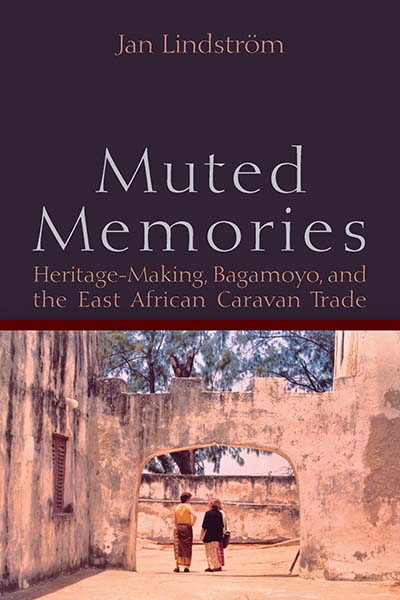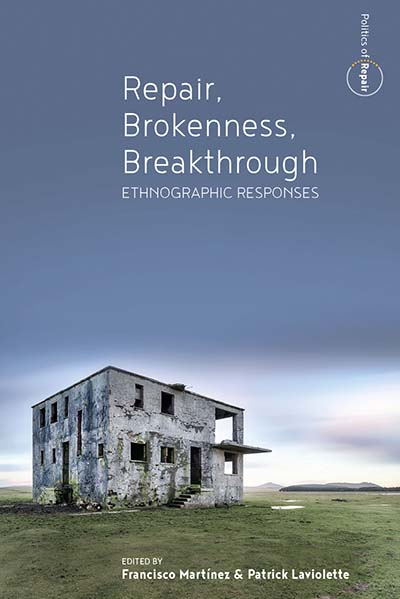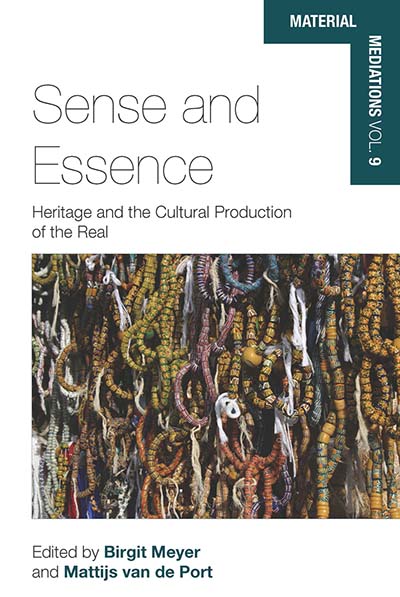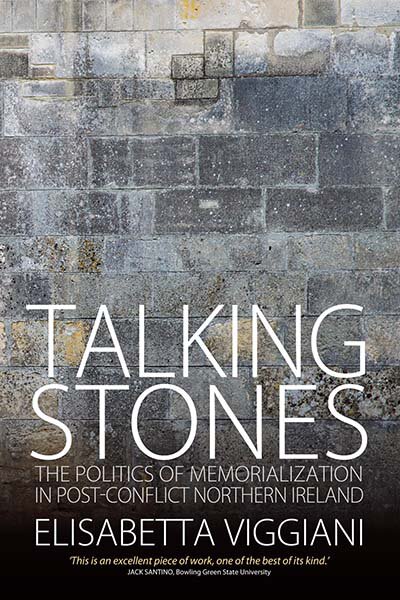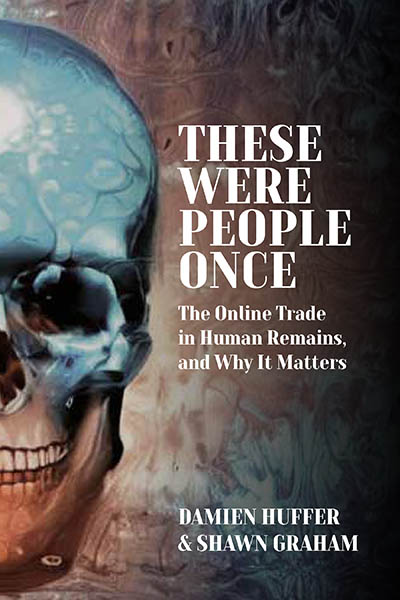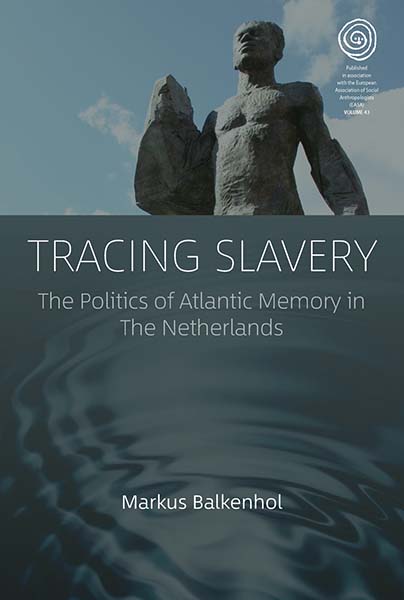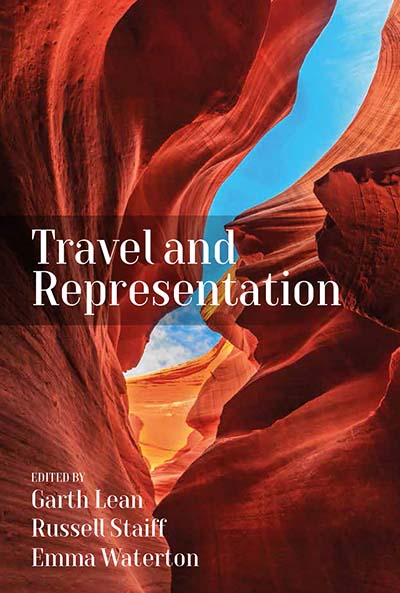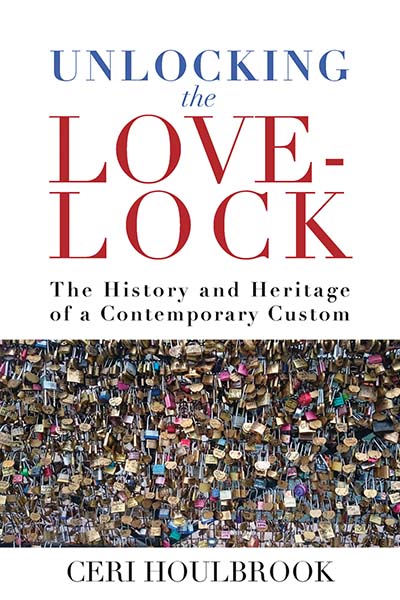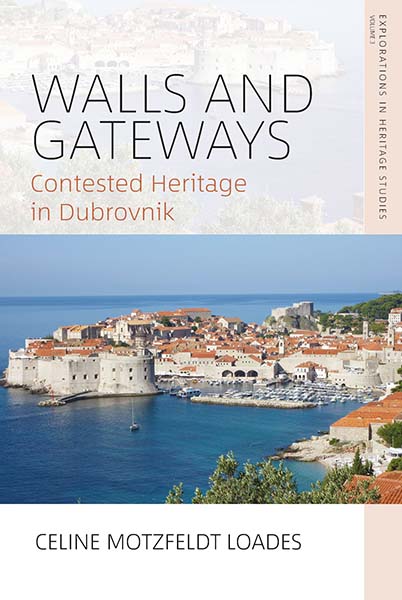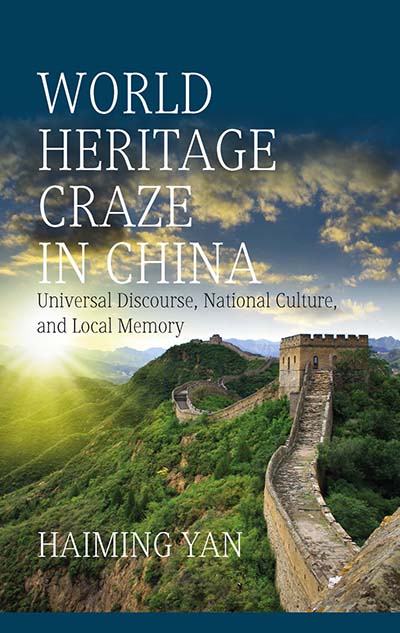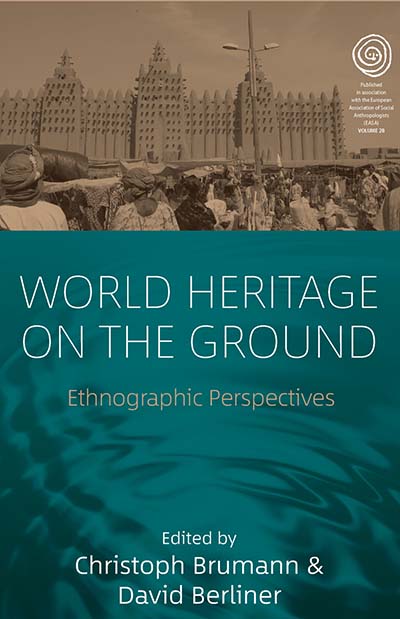Home -> Browse
-

Anthropology and Nostalgia
Angé, O. & Berliner, D. (eds)
Nostalgia is intimately connected to the history of the social sciences in general and anthropology in particular, though finely grained ethnographies of nostalgia and loss are still scarce. Today, anthropologists have realized that nostalgia constitutes a fascinating object of study for exploring contemporary issues of the formation of identity in politics and history. Contributors to this volume consider the fabric of nostalgia in the fields of heritage and tourism, exile and diasporas, postcolonialism and postsocialism, business and economic exchange, social, ecological and religious movements, and nation building. They contribute to a better understanding of how individuals and groups commemorate their pasts, and how nostalgia plays a role in the process of remembering.
Subjects: Anthropology (General) Heritage Studies Theory and Methodology
-

Archaeogaming
An Introduction to Archaeology in and of Video Games
Reinhard, A.
A general introduction to archeogaming describing the intersection of archaeology and video games and applying archaeological method and theory into understanding game-spaces.
“[T]he author’s clarity of style makes it accessible to all readers, with or without an archaeological background. Moreover, his personal anecdotes and gameplay experiences with different game titles, from which his ideas often develop, make it very enjoyable reading.”—Antiquity
Video games exemplify contemporary material objects, resources, and spaces that people use to define their culture. Video games also serve as archaeological sites in the traditional sense as a place, in which evidence of past activity is preserved and has been, or may be, investigated using the discipline of archaeology, and which represents a part of the archaeological record.
From the introduction:
Archaeogaming, broadly defined, is the archaeology both in and of digital games… As will be described in the following chapters, digital games are archaeological sites, landscapes, and artifacts, and the game-spaces held within those media can also be understood archaeologically as digital built environments containing their own material culture… Archaeogaming does not limit its study to those video games that are set in the past or that are treated as “historical games,” nor does it focus solely on the exploration and analysis of ruins or of other built environments that appear in the world of the game. Any video game—from Pac-Man to Super Meat Boy—can be studied archaeologically.Subject: Archaeology Heritage Studies Anthropology (General)
-

Articulate Necrographies
Comparative Perspectives on the Voices and Silences of the Dead
Panagiotopoulos, A. & Espírito Santo, D. (eds)
Going beyond the frameworks of the anthropology of death, Articulate Necrographies offers a dramatic new way of studying the dead and their interactions with the living. Traditional anthropology has tended to dichotomize societies where death “speaks” from those where death is “silent” – the latter is deemed “scientific” and the former “religious” or “magical”. The collection introduces the concept of “necrography” to describe the way death and the dead create their own kinds of biographies in and among the living, and asks what kinds of articulations and silences this in turn produces in the lives of those affected.
Subjects: Anthropology (General) Anthropology of Religion Heritage Studies Literary Studies
-

Artifak
Cultural Revival, Tourism, and the Recrafting of History in Vanuatu
DeBlock, H.
In Vanuatu, commoditization and revitalization of culture and the arts do not necessarily work against each other; both revolve around value formation and the authentication of things. This book investigates the meaning and value of (art) objects as commodities in differing states of transit and transition: in the local place, on the market, in the museum. It provides an ethnographic account of commoditization in a context of revitalization of culture and the arts in Vanuatu, and the issues this generates, such as authentication of actions and things, indigenized copyright, and kastom disputes over ownership and the nature of kastom itself.
Subjects: Anthropology (General) Heritage Studies Museum Studies
Area: Asia-Pacific
-

Atlantic Perspectives
Places, Spirits and Heritage
Balkenhol, M., Blanes, R. L., & Sarró, R. (eds)
Focusing on mobility, religion, and belonging, the volume contributes to transatlantic anthropology and history by bringing together religion, cultural heritage and placemaking in the Atlantic world. The entanglements of these domains are ethnographically scrutinized to perceive the connections and disconnections of specific places which, despite a common history, are today very different in terms of secular regimes and the presence of religion in the public sphere. Ideally suited to a variety of scholars and students in different fields, Atlantic Perspectives will lead to new debates and conversations throughout the fields of anthropology, religion and history.
Subjects: Anthropology of Religion Anthropology (General) Heritage Studies
-

Being Bedouin Around Petra
Life at a World Heritage Site in the Twenty-First Century
Bille, M.
Petra, Jordan became a UNESCO World Heritage site in 1985, and the semi-nomadic Bedouin inhabiting the area were resettled as a consequence. The Bedouin themselves paradoxically became UNESCO Masterpieces of Oral and Intangible Heritage in 2005 for the way in which their oral traditions and everyday lives relate to the landscape they no longer live in. Being Bedouin Around Petra asks: How could this happen? And what does it mean to be Bedouin when tourism, heritage protection, national discourse, an Islamic Revival and even New Age spiritualism lay competing claims to the past in the present?
Subjects: Anthropology (General) Anthropology of Religion Heritage Studies
Area: Middle East & Israel
-

Blurring Timescapes, Subverting Erasure
Remembering Ghosts on the Margins of History
Surface-Evans, S., Garrison, A. E. & Supernant, K. (eds)
What happens when we blur time and allow ourselves to haunt or to become haunted by ghosts of the past? Drawing on archaeological, historical, and ethnographic data, Blurring Timescapes, Subverting Erasure demonstrates the value of conceiving of ghosts not just as metaphors, but as mechanisms for making the past more concrete and allowing the negative specters of enduring historical legacies, such as colonialism and capitalism, to be exorcised.
Subjects: Archaeology Anthropology (General) Memory Studies Heritage Studies
-

Borders of Belonging
Experiencing History, War and Nation at a Danish Heritage Site
Daugbjerg, M.
In an era cross-cut with various agendas and expressions of national belonging and global awareness, “the nation” as a collective reference point and experienced entity stands at the center of complex identity struggles. This book explores how such struggles unfold in practice at a highly symbolic battlefield site in the Danish/German borderland. Comprised of an ethnography of two profoundly different institutions – a conventional museum and an experience-based heritage center – it analyses the ways in which staff and visitors interfere with, relate to, and literally “make sense” of the war heritage and its national connotations. Borders of Belonging offers a comparative, in-depth analysis of the practices and negotiations through which history is made and manifested at two houses devoted to the interpretation of one event: the decisive battle of the 1864 war in which Otto von Bismarck, on his way to uniting the new German Empire, led the Prussian army to victory over the Danish. Working through his empirical material to engage with and challenge established theoretical positions in the study of museums, modernity, and tourism, Mads Daugbjerg demonstrates that national belonging is still a key cultural concern, even as it asserts itself in novel, muted, and increasingly experiential ways.
Subjects: Heritage Studies Travel and Tourism Museum Studies Memory Studies
Area: Northern Europe
-

The Camino de Santiago
Curating the Pilgrimage as Heritage and Tourism
Murray, M.
Pilgrimage, as a global activity linked to the sacred, speaks to the special significance of persons, places and events. This book relates these sentiments to the curatorship of the Camino de Santiago that comprises a lattice of European pilgrimage itineraries converging at Santiago de Compostela in northwest Spain. The detailed analysis focuses on the management of pilgrimage settings as heritage and tourism linked to the shrine of Saint James and gives particular attention to investment guidelines, land use planning regulations, environmental stewardship, information dissemination and museology.
Subjects: Heritage Studies Anthropology of Religion Anthropology (General)
Area: Southern Europe
-

Children Dancing in Bali
Practice, Performance, and Power
McIntosh, J.
The question of power and agency between children and adults within the context of traditional Balinese dance remains multilayered. While adults exercise authority over children in formal settings, an alternative dynamic exists outside the confines of traditional performance contexts where children operate as artistic agents. In this illuminating ethnographic study of Balinese dance traditions, Jonathan McIntosh examines how children navigate the nexus of practice, performance, and power through the medium of Balinese culture. From structured dance classes to gatherings that embrace popular music, Children Dancing in Bali spotlights the creative potential of Balinese performance practices to negotiate identity and society.
Subjects: Performance Studies Anthropology (General) Heritage Studies
Area: Asia-Pacific
-

Death, Materiality and Mediation
An Ethnography of Remembrance in Ireland
Graham, B.
In Death, Materiality and Mediation, Barbara Graham analyzes a diverse range of objects associated with remembrance in both the public and private arenas through ethnography of communities on both sides of the Irish border. In doing so, she explores the materially mediated interactions between the living and the dead, revealing the physical, cognitive, emotional, and spiritual roles of the dead in contemporary communities. Through this study, Graham expands the concept of materiality to include narrative, song, senses, emotions, ephemera and embodied experience. She also examines how modern practices are informed by older beliefs and folk religion.
Subjects: Anthropology (General) Heritage Studies Anthropology of Religion
Area: Europe
-

Dictionary of Authentic American Proverbs
Mieder, W.
Dictionary of Authentic American Proverbs offers a comprehensive reference guide for distinctly American proverbs. Compiled by Wolfgang Mieder, a key figure in the field of proverb studies, this compendium features nearly 1,500 proverbs with American origins, spanning the 17th century to present day, including a scholarly introduction exploring the history of proverbs in America, the structure and variants of these proverbs, known authors and sources, and cultural values expressed in these proverbs. Along with a comprehensive bibliography of proverb collections and interpretive scholarship, this dictionary offers a glimpse into the history of American social and cultural attitudes through uniquely American language.
Subjects: Literary Studies Heritage Studies Cultural Studies (General)
Area: North America
-

Emplaced Belief
Heritage and Religion Reconsidered
Johnston, J., Gibson, M., Hampson, J. & Whyte, N. (Eds.)
Emplaced Belief is an innovative interdisciplinary volume that explores the conceptual and lived relations between the academic fields of religion and heritage. The Contributors adopt a holistic approach to consider emplacement — a broad interrelation of objects, peoples, histories and places — in the analysis of relations between religion and heritage. To be ‘emplaced’ is to be situated, yet such positioning is the result of multiple conscious and unconscious forces, agencies, discourses, and epistemologies. The volume’s title refers not only to physical locations of import, but also to the role of cultural practices and religious epistemologies in the establishment of religious heritage: the act of emplacement. That is, the religious, social, political and cultural practices that denote ‘heritage’ and the dynamics that revise, reinforce, or remove any such attribution.
Subjects: Heritage Studies Anthropology of Religion History (General) Cultural Studies (General)
-

European Products
Making and Unmaking Heritage in Cyprus
Welz, G.
On the Mediterranean island of Cyprus, rural villages, traditional artefacts, even atmospheres and experiences are considered heritage. Heritage making not only protects, but also produces, things, people, and places. Since the Republic of Cyprus joined the European Union in 2004, heritage making and Europeanization are increasingly intertwined in Greek-Cypriot society. Against the backdrop of a long-term ethnographic engagement, the author argues that heritage emerges as an increasingly standardized economic resource, a “European product.” Implemented in historic preservation, rural tourism, culinary traditions, nature protection, and urban restoration projects, heritage policy has become infused with transnational market regulations and neoliberal property regimes.
Subjects: Anthropology (General) Museum Studies Heritage Studies
Area: Southern Europe
-

From Storeroom to Stage
Romanian Attire and the Politics of Folklore
Urdea, A.
Departing from an ethnographic collection in London, From Storeroom to Stage traces the journey of its artefacts back to the Romanian villages where they were made 70 years ago, and to other places where similar objects are still in use. The book explores the role that material culture plays in the production of value and meaning by examining how folk objects are mobilized in national ideologies, transmissions of personal and family memory, museological discourses, and artistic acts.
Subjects: Anthropology (General) Museum Studies Heritage Studies
Area: Central/Eastern Europe
-

Having and Belonging
Homes and Museums in Israel
Jaffe-Schagen, J.
The home and the museum are typically understood as divergent, even oppositional, social realms: whereas one evokes privacy and familial intimacy, the other is conceived of as a public institution oriented around various forms of civic identity. This meticulous, insightful book draws striking connections between both spheres, which play similar roles by housing objects and generating social narratives. Through fascinating explorations of the museums and domestic spaces of eight representative Israeli communities—Chabad, Moroccan, Iraqi, Ethiopian, Russian, Religious-Zionist, Christian Arab, and Muslim Arab—it gives a powerful account of museums’ role in state formation, proposing a new approach to collecting and categorizing particularly well-suited to societies in conflict.
Subjects: Museum Studies Heritage Studies Refugee and Migration Studies
Area: Middle East & Israel
-

Heritage Movements in Asia
Cultural Heritage Activism, Politics, and Identity
Mozaffari, A. & Jones, T. (eds)
Heritage processes vary according to cultural, national, geographical, and historical contexts. This volume is unique in that it is dedicated to approaching the analysis of heritage through the concepts of social movements. Adapting the latest developments in the field of social movements, the chapters examine the formation, use and contestation of heritage by various official, non-official and activist players and the spaces where such ongoing negotiations and contestation take place. By bringing social movements into heritage studies, the book advocates a shift of perspective in understanding heritage, one that is no longer bound by (at times arbitrary) divisions such as those assumed between the state and people or between experts and non-experts.
Subjects: Heritage Studies Museum Studies Anthropology (General)
Areas: Asia Asia-Pacific
-

Heritage, Gentrification and Resistance in the Neoliberal City
Hammami, F., Jewesbury, D., & Valli, C. (eds)
What happens when versions of the past become silenced, suppressed, or privileged due to urban restructuring? In what ways are the interpretations and performances of ‘the past’ linked to urban gentrification, marginalization, displacement, and social responses? Authors explore a variety of attempts to interrupt and interrogate urban restructuring, and to imagine alternative forms of urban organization, produced by diverse coalitions of resisting groups and individuals. Armed with historical narratives, oral histories, objects, physical built environment, memorials, and intangible aspects of heritage that include traditions, local knowledge and experiences, memories, authors challenge the ‘devaluation’ of their neighborhoods in official heritage and development narratives.
Subjects: Heritage Studies Cultural Studies (General) History (General)
-

Hunting the Gatherers
Ethnographic Collectors, Agents, and Agency in Melanesia 1870s-1930s
O'Hanlon, M. & Welsch, R. (eds)
Between the 1870s and the 1930s competing European powers carved out and consolidated colonies in Melanesia, the most culturally diverse region of the world. As part of this process, great assemblages of ethnographic artefacts were made by a range of collectors whose diversity is captured in this volume. The contributors to this tightly-integrated volume take these collectors, and the collecting institutions, as the departure point for accounts that look back at the artefact-producing societies and their interaction with the collectors, but also forward to the fate of the collections in metropolitan museums, as the artefacts have been variously exhibited, neglected, re-conceived as indigenous heritage, or repatriated. In doing this, the contributors raise issues of current interest in anthropology, Pacific history, art history, museology, and material culture.
Subjects: Museum Studies Theory and Methodology Colonial History Heritage Studies
Area: Asia-Pacific
-

Indigeneity and the Sacred
Indigenous Revival and the Conservation of Sacred Natural Sites in the Americas
Sarmiento, F. & Hitchner, S. (eds)
This book presents current research in the political ecology of indigenous revival and its role in nature conservation in critical areas in the Americas. An important contribution to evolving studies on conservation of sacred natural sites (SNS), the book elucidates the complexity of development scenarios within cultural landscapes related to the appropriation of religion, environmental change in indigenous territories, and new conservation management approaches. Indigeneity and the Sacred explores how these struggles for land, rights, and political power are embedded within physical landscapes, and how indigenous identity is reconstituted as globalizing forces simultaneously threaten and promote the notion of indigeneity.
Subjects: Environmental Studies (General) Development Studies Anthropology (General) Heritage Studies
Areas: North America Latin America and the Caribbean
-

Life with Durham Cathedral
A Laboratory of Community, Experience and Building
Calvert, A. J.
An ethnographic account of daily life in Durham Cathedral, this book examines the processes of negotiation and change between a community and their cathedral. Focusing on the role of sound, light, time, space, building and dwelling, the author argues that Durham Cathedral is much more than just a backdrop to everyday life. Rather, through the constant processes of negotiation and change, it is a fully engaged participant in the daily lives of those who use Durham Cathedral. As such, it is not a place in which life happens, but a place with which life happens.
Subjects: Heritage Studies Anthropology (General) Anthropology of Religion
Area: Northern Europe
-

Managing Sacralities
Competing and Converging Claims of Religious Heritage
Hemel, E. van den, Salemink, O., & Stengs, I. (eds)
What happens when religious sites, objects and practices become cultural heritage? What are —religious or secular—sources of expertise and authority that validate and regulate heritage sites, objects and practices? As cultural heritage becomes an increasingly popular and influential frame, these questions arise in diverse and challenging manners. The question who controls, manages, and frames religious heritage, and how, arises with particular urgency. Case studies from Denmark, the Netherlands, Poland, Portugal and the United Kingdom present an analysis of the paradoxes and challenges that arise when religious sites are transformed into heritage.
Subjects: Heritage Studies History (General) Anthropology of Religion
Area: Europe
-

Muted Memories
Heritage-Making, Bagamoyo, and the East African Caravan Trade
Lindström, J.
In the late nineteenth century, tens of thousands of porters carried ivory every year from the African interior to Bagamoyo, a port town at the Indian Ocean. In the opposite direction, they carried millions of meters of cloth, manufactured in the USA, Europe, and India. This book examines the centrality of the caravan trade, both culturally and economically, to Bagamoyo’s development and cosmopolitan character, while also exploring how this history was silenced when Bagamoyo was instead branded as a slave route town in 2006 in an attempt to qualify it for the UNESCO World Heritage List.
Subjects: Anthropology (General) Heritage Studies Development Studies
Area: Africa
-

Repair, Brokenness, Breakthrough
Ethnographic Responses
Martínez, F. & Laviolette, P. (eds)
Exploring some of the ways in which repair practices and perceptions of brokenness vary culturally, Repair, Brokenness, Breakthrough argues that repair is both a process and also a consequence which is sought out—an attempt to extend the life of things as well as an answer to failures, gaps, wrongdoings, and leftovers. This volume develops an open-ended combination of empirical and theoretical questions including: What does it mean to claim that something is broken? At what point is something broken repairable? What are the social relationships that take place around repair? And how much tolerance for failure do our societies have?
Subjects: Anthropology (General) Sociology Heritage Studies
-

Sense and Essence
Heritage and the Cultural Production of the Real
Meyer, B. & van de Port, M. (eds)
Contrary to popular perceptions, cultural heritage is not given, but constantly in the making: a construction subject to dynamic processes of (re)inventing culture within particular social formations and bound to particular forms of mediation. Yet the appeal of cultural heritage often rests on its denial of being a fabrication, its promise to provide an essential ground to social-cultural identities. Taking this paradoxical feature as a point of departure, and anchoring the discussion to two heuristic concepts—the "politics of authentication" and "aesthetics of persuasion"—the chapters herein explore how this tension is central to the dynamics of heritage formation worldwide.
Subjects: Anthropology (General) Heritage Studies Museum Studies
-

Talking Stones
The Politics of Memorialization in Post-Conflict Northern Ireland
Viggiani, E.
If memory was simply about past events, public authorities would never put their ever-shrinking budgets at its service. Rather, memory is actually about the present moment, as Pierre Nora puts it: “Through the past, we venerate above all ourselves.” This book examines how collective memory and material culture are used to support present political and ideological needs in contemporary society. Using the memorialization of the Troubles in contemporary Northern Ireland as a case study, this book investigates how non-state, often proscribed, organizations have filled a societal vacuum in the creation of public memorials. In particular, these groups have sifted through the past to propose “official” collective narratives of national identification, historical legitimation, and moral justifications for violence.
Subjects: Memory Studies Heritage Studies Anthropology (General)
Area: Europe
-

These Were People Once
The Online Trade in Human Remains and Why It Matters
Huffer, D. & Graham, S.
People buy and sell human remains online. Most of this trade these days is over social media. In a study of this ‘bone trade’, how it works, and why it matters, the authors review and use a variety of methods drawn from the digital humanities to analyze the sheer volume of social media posts in search of answers to questions regarding this online bone trade. The answers speak to how the 21st century understands and constructs ‘heritage’ more generally: each person their own expert, yet seeking community and validation, and like the major encyclopedic museums, built on a kind of digital neocolonialist othering of the dead.
Subjects: Archaeology Heritage Studies Political and Economic Anthropology
-

Tracing Slavery
The Politics of Atlantic Memory in The Netherlands
Balkenhol, M.
Looking at the ways in which the memory of slavery affects present-day relations in Amsterdam, this ethnographic account reveals a paradox: while there is growing official attention to the country’s slavery past (monuments, festivals, ritual occasions), many interlocutors showed little interest in the topic. Developing the notion of “trace” as a seminal notion to explore this paradox, this book follows the issue of slavery in everyday realities and offers a fine-grained ethnography of how people refer to this past – often in almost unconscious ways – and weave it into their perceptions of present-day issues.
Subjects: Memory Studies Anthropology (General) Heritage Studies
Area: Europe
-

Travel and Representation
Lean, G., Staiff, R., & Waterton, E. (eds)
Travel and Representation is a timely volume of essays that explores and re-examines the various convergences between literature, art, photography, television, cinema and travel. The essays do so in a way that appreciates the entanglement of representations and travel at a juncture in theoretical work that recognizes the limits of representation, things that lie outside of representation and the continuing power of representation. The emphasis is on the myriad ways travelers/scholars employ representation in their writing/analyses as they re-think the intersections between travelers, fields of representation, imagination, emotions and corporeal experiences in the past, the present and the future.
Subjects: Heritage Studies Travel and Tourism Cultural Studies (General) Literary Studies
-

Unlocking the Love-Lock
The History and Heritage of a Contemporary Custom
Houlbrook, C.
Explores the worldwide popularity of the love-lock as a ritual token of love and commitment by considering its history, symbolism, and heritage.
“[T]his is an eminently enjoyable and thorough investigation of a popular phenomenon through the lens of heritage and folk tradition.”—Sara De Nardi, Western Sydney University
A padlock is a mundane object, designed to fulfil a specific – and secular – purpose. A contemporary custom has given padlocks new significance. This custom is ‘love-locking’, where padlocks are engraved with names and attached to bridges in declaration of romantic commitment. This custom became popular in the 2000s, and its dissemination was rapid, geographically unbound, and highly divisive, with love-locks emerging in locations as diverse as Paris and Taiwan; New York and Seoul; Melbourne and Moscow.
From the introduction:
I was distractedly perusing the photo frame aisle, my eyes skimming the generically sentimental stock pictures of happy families smiling at the camera, pretty landscapes, cute pets and couples walking hand-in-hand, when I came across one that jumped out at me…. I recognised the image instantly as a photograph of love-locks: the padlocks that had been appearing en masse on bridges and other public structures on a global scale since the early 2000s. And, having been researching the custom known as lovelocking for about five years at that point, it was with a peculiar sense of pride that I realised love-locks had accomplished the status of a stock image.Subjects: Heritage Studies Archaeology Museum Studies Cultural Studies (General)
-

Walls and Gateways
Contested Heritage in Dubrovnik
Loades, C. M.
In 1979 Dubrovnik was declared a UNESCO World Heritage site, which had consequences for the city's broader cultural heritage. Walls and Gateways explores how this status intersects with the reconstruction and consolidation of identities and locality in the city’s post-war context. It analyses how representations, perceptions and uses of Dubrovnik’s heritage are embedded in particular cultural practices, materiality and place. In Dubrovnik’s post-war context, different uses of cultural memory and heritage provoke both dissonance and unity, shape practices and mobilize cultural and political activism.
Subjects: Heritage Studies Anthropology (General) Memory Studies
Area: Central/Eastern Europe
-

World Heritage Craze in China
Universal Discourse, National Culture, and Local Memory
Yan, H.
There is a World Heritage Craze in China. China claims to have the longest continuous civilization in the world and is seeking recognition from UNESCO. This book explores three dimensions of the UNESCO World Heritage initiative with particular relevance for China: the universal agenda, the national practices, and the local responses. With a sociological lens, this book offers comprehensive insights into World Heritage, as well as China’s deep social, cultural, and political structures.
Subjects: Heritage Studies Archaeology Sociology Travel and Tourism
Areas: Asia Asia-Pacific
-

World Heritage on the Ground
Ethnographic Perspectives
Brumann, C. & Berliner, D. (eds)
The UNESCO World Heritage Convention of 1972 set the contemporary standard for cultural and natural conservation. Today, a place on the World Heritage List is much sought after for tourism promotion, development funding, and national prestige. Presenting case studies from across the globe, particularly from Africa and Asia, anthropologists with situated expertise in specific World Heritage sites explore the consequences of the World Heritage framework and the global spread of the UNESCO heritage regime. This book shows how local and national circumstances interact with the global institutional framework in complex and unexpected ways. Often, the communities around World Heritage sites are constrained by these heritage regimes rather than empowered by them.
Subjects: Anthropology (General) Heritage Studies Archaeology Museum Studies


